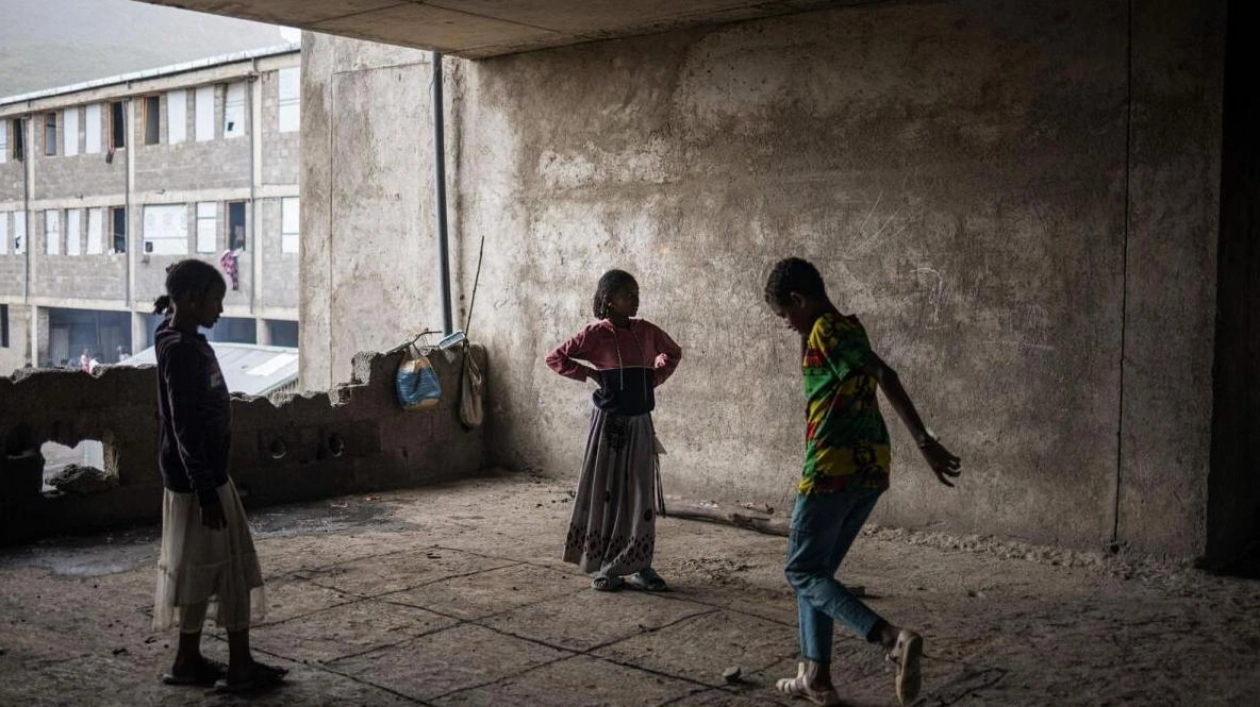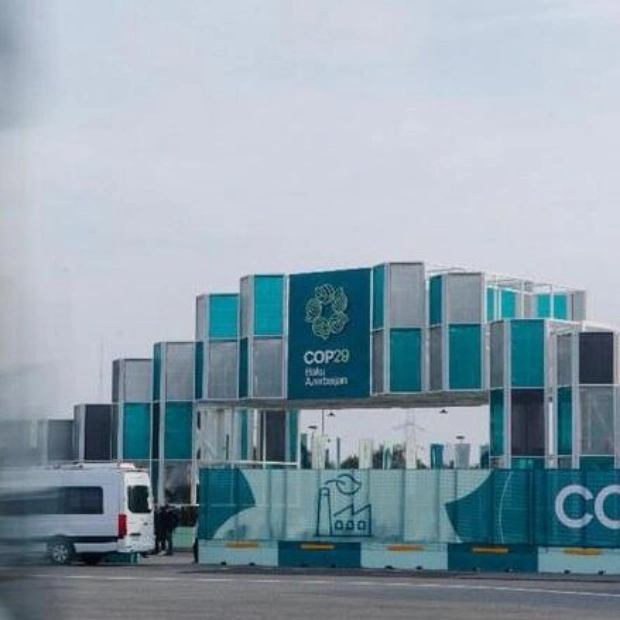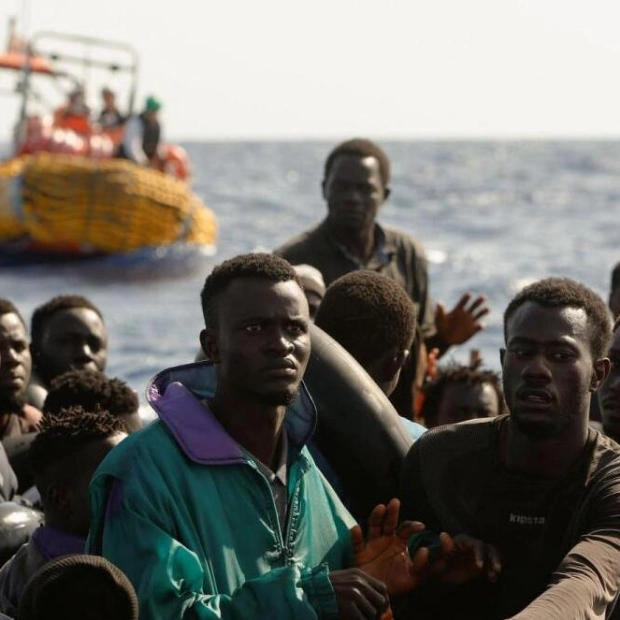Children are seen playing inside an incomplete school structure being used as a shelter at the NSPS internally displaced persons camp in Adwa, Tigray region, on July 17, 2024. — AFP file
"I don't know when I'll be able to return to school," said 14-year-old Desta, one of millions of children in Ethiopia's Amhara region who have been deprived of education. Desta has not attended a classroom for nearly four months and now spends his time between farming and household tasks at home—a silent victim of the ongoing armed conflicts in the country's volatile northern region. Until September, the teenager—whose name has been changed due to security concerns—used to walk about 10 kilometers to school from his village, which is roughly 250 kilometers east of Bahir Dar, the regional capital. However, after the outbreak of fighting in the area, Desta's father, Tesfaye, refused to let him go back to school.
"I don't want my son to risk his life by attending school," Tesfaye told AFP over the phone from their village. Amhara is Ethiopia's second most populous region, with a population of around 23 million, but it has been plagued by conflict since April 2023. The Fano "self-defense" militia took up arms against the state after authorities attempted to disarm them. Although the state of emergency ended in June, the government was forced to deploy troops in September due to the continued unrest. Federal authorities recently described the humanitarian situation as "catastrophic." According to the UN Office for Humanitarian Affairs (OCHA), more than 4,000 schools have closed in the region due to the clashes, and 300 others have been damaged. Rights groups say some children have been without formal education for years, partly due to the war in Tigray and the closure of schools during the Covid-19 pandemic.
"When war breaks out, women and children are the most vulnerable, and this conflict has severely impacted children who can no longer attend school," said Yohannes Benti, head of the Ethiopian Teachers' Association, which has around 700,000 members nationwide. Of the seven million children who should have enrolled for the last school year in Amhara, only three million were able to do so, he noted. The impact is not limited to the north; millions of children in Tigray and Oromia, Ethiopia's most populous region, have also been deprived of education.
"Even missing one day of school means you miss a lot, so imagine missing months or even years," Benti said, emphasizing that the youngest children are hit the hardest. "This is a lost generation." Desta hopes that he and his classmates will soon be able to reunite and resume learning. "What I miss most is spending time with my friends, and I hope to see them again soon," he said. "I don't know when I'll be able to go back to school, but if they tell me it's possible tomorrow, I'll go."
However, teachers like Dawit, who taught in the northern Amhara town of Dessie for 17 years, have lost the optimism of youth. Over the years, Dawit said he has seen his life's work vanish. "Last year, we were only able to teach for a month" due to the fighting, he told AFP. He explained how the frequent government and Fano roadblocks discourage parents from sending their children to school. "There's fighting every day, and we're caught between the government, which wants us to continue teaching, and the Fano, who are trying to stop us," he said. "We've lost hope."
Source link: https://www.khaleejtimes.com






